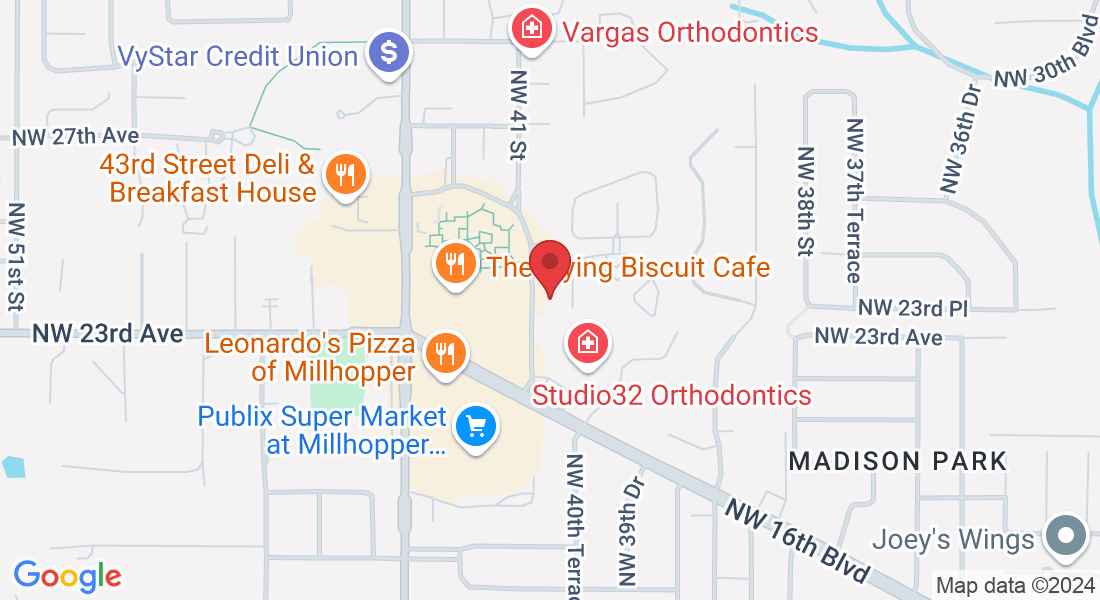James B. DeStephens, MD

(352) 240-9354
Do You Or Someone You Care About Suffer from Recurring Memory Lapses & Confusion?
Imagine...a non-surgical option that could significantly improve your symptoms or someone you care about
Do You Or Someone You Care About Suffer from Recurring Memory Lapses & Confusion?
Imagine...a non-surgical option that can significantly improve your symptoms or someone you care about
What is Non-Invasive Cardiology?
Dr. DeStephens is a dedicated non-invasive cardiologist, specializing in the diagnosis and management of heart conditions using advanced, non-surgical techniques. Non-invasive cardiology focuses on evaluating heart health through a range of diagnostic tests and procedures that do not require any incisions or surgical interventions. The evaluation of heart conditions can be generally defined by the following services:
Cardiac Imaging
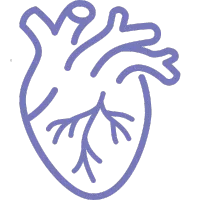
Electrocardiogram
(ECG)
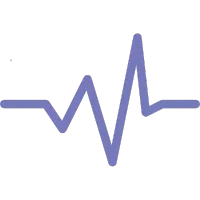
Stress Testing
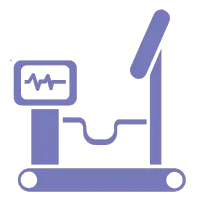
Holter & Event Monitoring
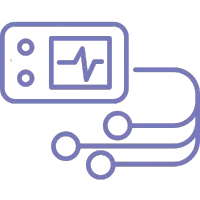
Cardiac Risk Assessment
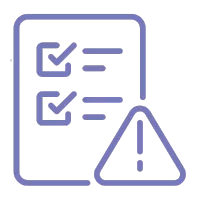
Hypertension Management
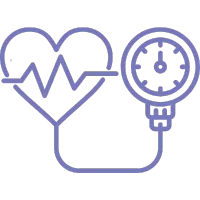
Preventative Cardiology
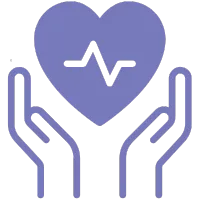
Dr. Destephens combines expertise in the latest non-invasive techniques with a patient-centered approach, ensuring thorough and compassionate care for each individual. Whether you need routine heart evaluations or advanced diagnostic testing, Dr. DeStephens is committed to providing high-quality, non-invasive cardiac care to support your heart health and overall well-being.
Take Control of Your Brain Health With
Enhanced External Counter Pulsation (EECP) Therapy
A Non-Invasive Treatment to Increase Blood Circulation to the Brain
EECP is widely considered the most effective non-invasive treatment for heart conditions such as coronary artery disease, angina, and symptoms associated with heart disease such as chest pain, shortness of breath, and fatigue.
EECP has been demonstrated to significantly increase blood flow everywhere in the body, just as it does in the heart for which it has FDA clearance. That includes enhancing brain circulation as well which can both prevent and help to reverse inadequate brain circulation. This is frequently at the center of vascular dementia and progressive cognitive decline.
Using advanced counter pulsation technology synced up to one’s heartbeat, EECP Flow Therapy treatments increase the flow of oxygenated blood to the brain by increasing the volume and velocity of blood through the body.
In essence, it mimics physical exercise without straining the heart. This results in the creation of new collateral blood vessels that improve circulation, reduce the severity of symptoms, and enable patients to regain their quality of life–all without surgery.
This picture demonstrates the heart and surrounding vascular structure after ECP
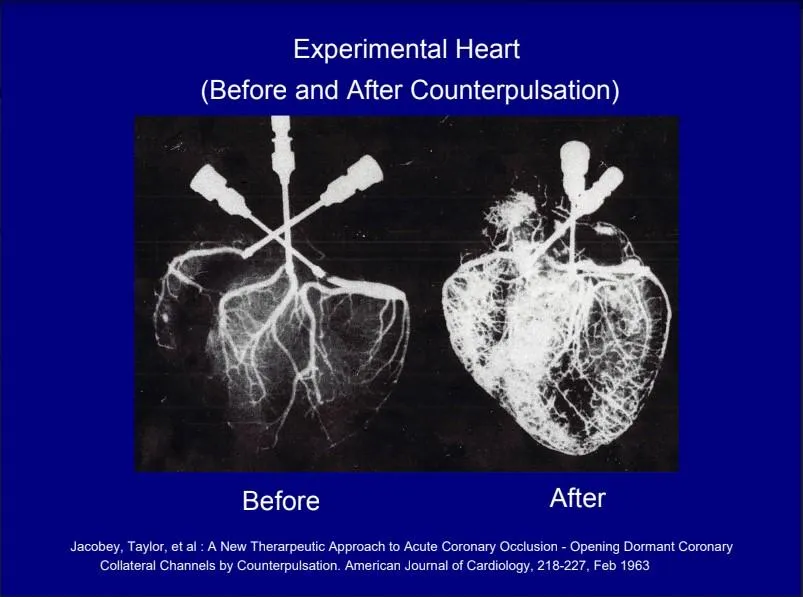
TRUSTED

Trusted by providers at leading institutions like Mayo Clinic, Cleveland Clinic, and Johns Hopkins.
PROVEN

75% of patients see significant and sometimes dramatic improvement.
LONG-LASTING

EECP has clinically proven benefits that last for years after treatment. If symptoms return in the future, additional EECP can be scheduled.
Am I candidate for EECP Treatment?
Have you been diagnosed with coronary artery disease?
Do you suffer from chest pain, tightness, shortness of breath or fatigue?
Tried medications but still suffering from these symptoms?
Have you been told you have chronic heart failure but have stable symptoms?
Are you looking for alternatives to surgery or other invasive treatments?
If you answered yes to any of the above questions, you may be candidate for EECP
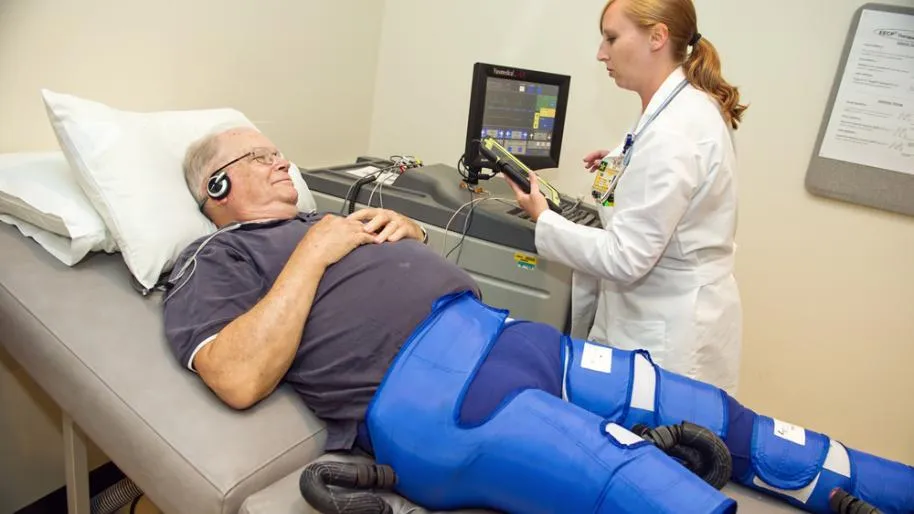
Am I candidate for EECP Treatment?
Looking to improve your cognitive and executive functioning?
Suffering from lingering memory issues, lack of mental clarity, and focus due to COVID?
Experiencing progressive dementia?
Are you looking for alternatives to surgery or other invasive treatments?
If you answered yes to any of the above questions, you may be candidate for EECP

What is Coronary Arterial Disease (CAD)?
Coronary artery disease (CAD) is a common type of heart disease. It affects the main blood vessels that supply blood to the heart, called the coronary arteries. In CAD, there is reduced blood flow to the heart muscle. A buildup of fats, cholesterol and other substances in and on the artery walls, a condition called atherosclerosis, usually causes coronary artery disease. The buildup, called plaque, makes the arteries narrow.
Coronary artery disease often develops over many years. Symptoms are from the lack of blood flow to the heart. They may include chest pain and shortness of breath. A complete blockage of blood flow can cause a heart attack.
Treatment for coronary artery disease may include medicines and surgery. Eating a nutritious diet, getting regular exercise and not smoking can help prevent coronary artery disease and the conditions that can cause it.
Coronary artery disease also may be called coronary heart disease.
What are the common symptoms of CAD?
Chest Tightness or Pressure (Angina)

Chest tightness or pressure is a hallmark symptom of coronary arterial disease (CAD). This sensation is often described as a squeezing, heaviness, or constricting feeling in the chest, which may be mistaken for simple indigestion. It typically occurs during physical exertion, emotional stress, or after heavy meals, reflecting a reduced blood flow to the heart muscle due to narrowed or blocked coronary arteries. The discomfort may be transient or persist, and it can sometimes radiate to the shoulders, neck, jaw, or arms. This symptom warrants prompt medical evaluation to determine its cause and to assess the overall cardiac health, as it may indicate a significant reduction in coronary blood flow and potential risk for more serious cardiac events.
Shortness of Breath
(Dyspnea)

Dyspnea, or shortness of breath, is a common symptom associated with coronary arterial disease (CAD). It is characterized by an uncomfortable or excessive feeling of breathlessness that may occur during physical activity, at rest, or while lying flat. This symptom arises due to the heart's reduced ability to efficiently pump blood, leading to decreased oxygen supply to the tissues. In CAD, this impaired blood flow is often caused by narrowed or blocked coronary arteries. Dyspnea can range from mild to severe and may be accompanied by other symptoms such as fatigue or chest discomfort. It is a critical sign that warrants medical evaluation to assess heart function and identify any underlying cardiac issues.
Our Staff
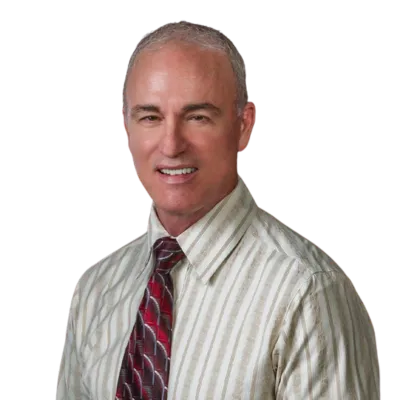
James Destephens, MD
Internal Medicine & Non-Invasive Cardiology Specialist

Chad Olsen
Office Manager
Hear From Our Patients
My grandfather loves to play chess but after his stroke, though it was not severe, his memory was affected and he became less talkative because he was having trouble finding the right words. Following his EECP treatment, he’s much more talkative and happy. And he’s beating me in chess again. Thankyou for giving us our grandfather back again!

Happy Client
I’m a recently retired business executive but since retiring and in fact for a few years even before, I was having problems remembering simple things like names of people I should know as well as stumbling over not remembering words that I never had a problem with before. I saw EECP advertised for the treatment of early dementia and went through the program. At its completion I’m pretty much back to my old self again. Slowly losing my mind during my retirement years is something I have seen in so many of my aging friends and relatives. Its nice to know that it can be treated so naturally just by stimulating circulation.

Happy Client
I’m a retired veterinary professor and contracted Covid that was followed by the so called Post Covid Syndrome characterized in my case by extreme mental slowing and inability to even complete a sentence without stumbling over words. My ability to think was getting rapidly worse. It got to the point that my coordination and balance were affected in that I couldn’t even walk a straight line without risk of falling. Dr. DeStephens showed me a study that was doe a year ago with 30 post covid patients suffering from neurological decline who were treated with EECP with 75% of them significantly if not dramatically better. I was 80% better after the first course so that no one else could tell that I had a problem but my memory was still not normal. I went through a second course and returned to my old self. Dr. DeStephens also treated my Covid aggressively to clear out any residual spike protein that likely was blocking off some of the small arteries in my brain with blood clotting being a common problem with Covid. But now I’m fully back to normal again. People need to find out about this!

Happy Client
I’m a part time pilot who was taking EECP treatments for its anti-aging benefits both for the heart as well as for my brain. But I was having severe problems with night vision when flying at night and had no idea why. Following EECP, the night skies seemed to light up like a Christmas tree when I was flying and I had no idea why this would be. I told Dr. DeStephens about it and he told me that progressive night vision problems are common in older age and is related to a reduced circulation to the retina behind the eye. The improvement in my night vision he said was due to improvement in my retina circulation. I wasn’t expecting that! It seems that a progressive weakening of the small blood vessels called collaterals is a natural part of the aging process and happens all over the body. Its nice to know that I can slow down this aging process by maintaining good collateral blood circulation with EECP. What a find! I never expected that.

Happy Client
I have progressive kidney failure due to the damage done to my kidneys from diabetes that has progressively damaged the kidneys’ circulation. I was being readied for dialysis. But I also had coronary artery disease that Dr. DeStephens treated with EECP. Not only did my angina frequency and severity dramatically improve but my kidney doctor told me that my kidneys had improved sufficiently that I no longer needed dialysis. Dr. DeStephens told me that he had another diabetic patient and a high blood pressure patient who were also facing dialysis because of blood vessel damage to the kidneys from the diabetes and high blood pressure. The kidney doctor told me that he had never seen end stage kidney disease improve such that dialysis was no longer needed. I’m sure they were both as shocked and excited as I was to find that out. But Dr. DeStephens cautioned each of us that the damage would continue if we weren’t very careful about controlling our diabetes and blood pressure.

Happy Client
Copyright© 2024 James B DeStephens. All rights reserved
(352) 240-9354
